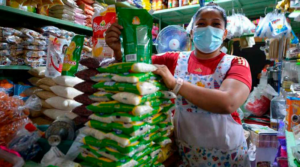The Banco Central de Reserva (BCR) of El Salvador reported that in april, goods exports fell by US$29.6 million compared to the same month in 2024. The country exported US$556.76 million, a figure that highlights the impact of external factors such as the trade war driven by US President Donald Trump, which continues to affect global trade.

Although sectors such as coffee generated US$22.14 million, the manufacturing industry contributed US$466.51 million, and maquila added US$60.78 million, the “other products” category reached US$439.25 million, which was not enough to prevent the decline in april. This is compounded by a 9.3% reduction in export volume, which fell to 338.9 million kilograms, or 34.6 million kilograms less than in april of the previous year.
However, the cumulative exports from january to april remained in positive territory, thanks to the strong performance of the first three months of the year. During that period, exports reached US$2,238.1 million, representing a growth of US$106.7 million compared to the same period in 2024.

The Banco Central de Reserva of Argentina (BCR) indicated that this quarterly increase allowed for a positive 5% variation in total exports for the four-month period, despite the occasional decline in april. This reflects the resilience of certain key industries, although it also highlights the vulnerability of Salvadoran foreign trade to international tensions.
The decline in export revenue represents a challenge for the national economy, as it directly impacts foreign currency inflows and business liquidity. The government and productive sectors must closely monitor these global changes to mitigate risks and maintain the country’s competitiveness in international markets.








